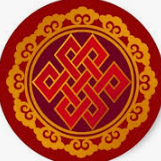How does Karma and Rebirth relate to modern theories of Evolution
-
Recently Browsing 0 members
- No registered users viewing this page.
-
Topics
-
Popular Contributors
-
Latest posts...
-
11
Good quality oven for bread
microwaves were invented for really busy people who didnt have more than 2 minutes to prepare a meal and frozen dinners. thais take the time to cook and don't rely on frozen dinners. until they get hitched up with a farang or they watch some american sitcom and decide to copy them i guess. -
4,815
-
33
Am I in trouble?I have an O visa ,reside in Rayong and just spent four days in Bangkok
As an individual in private or rented housing, you complete the main TM30 form. Hotels/Guest houses also complete the secondary part of the form advising who is in residence and the duration of stay. -
272
Things you like about Thailand
yep, you played a great game. Finding her, how much was luck and how much was having the right strategy? What's the age gap btw? -
18
-
11
Good quality oven for bread
It's not commonly used in their cuisine. Stir fries, rice cooker ...
-
-
Popular in The Pub
-


.thumb.jpg.bc523c85a8d558dbc282dca7a2e602c9.jpg)





Recommended Posts
Create an account or sign in to comment
You need to be a member in order to leave a comment
Create an account
Sign up for a new account in our community. It's easy!
Register a new accountSign in
Already have an account? Sign in here.
Sign In Now